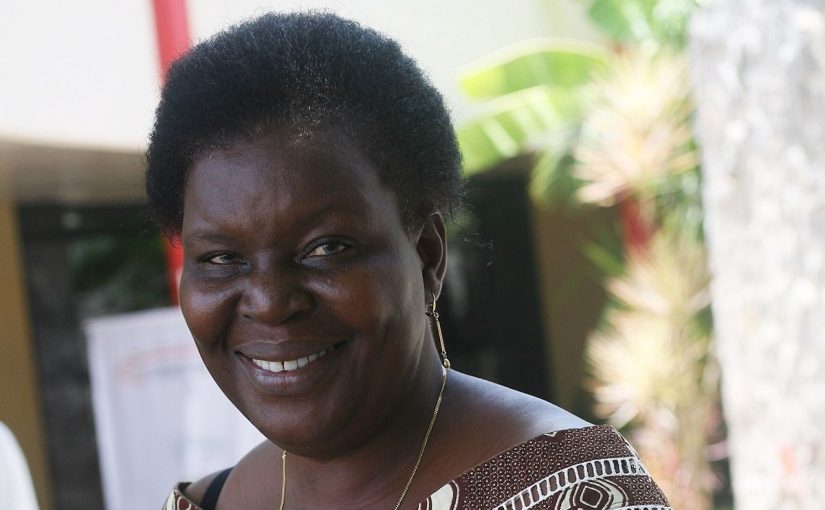A diplomat must be detail-oriented - Murade Murargy
Mozambican writer Paulina Chiziane wins Camões Prize

File photo: Lusa
Mozambican writer Paulina Chiziane is the winner of the Camões Prize 2021, in a choice made unanimously, Portuguese Culture Minister Graça Fonseca announced.
“The jury unanimously decided to award the prize to Mozambican writer Paulina Chiziane, highlighting her vast production and critical reception, as well as the academic and institutional recognition of her work”.
The jury also mentioned the importance that she dedicates in her books to the problems of Mozambican and African women. The jury underlined her recent work in reaching out to young people, namely in building bridges between literature and other arts.
Este prémio #Camões para #PaulinaChiziane “representa uma força de afirmação que eu não sabia que podia acontecer através de mim”, disse a escritora moçambicana pic.twitter.com/g1lZCHcWu1
— VOAPortuguês (@VOAPortugues) October 20, 2021
Paulina Chiziane “has been translated in many countries and is today one of the best-known voices in African fiction, having received several prizes and decorations”.
Paulina Chiziane was born in Manjacaze, Mozambique, in 1955. She studied linguistics in Maputo. She currently lives and works in Zambezia.
Fiction writer, she has published several short stories in the press.
She published her first novel, “Balada de Amor ao Vento” (1990), after the country’s independence, which is also the first novel by a Mozambican woman.
” Ventos do Apocalipse”, finished in 1991, was published in Maputo, in 1993, by the author and was published in Portugal, by Caminho, in 1999, preceding the publication of “Balada de Amor ao Vento”, in Portugal, by the same publisher, in 2003.
Caminho also has other titles by the author published in Portugal: “Sétimo Juramento” (2000), “Niketche: Uma História de Poligamia” (2002), “O Alegre Canto da Perdiz” (2008).
Her work also includes “As Andorinhas” (2009), “Na mão de Deus” and “Por Quem Vibram os Tambores do Além” (2013), “Ngoma Yethu: O curandeiro e o Novo Testamento” (2015), “O Canto dos Escravos” (2017), “O Curandeiro e o Novo Testamento” (2018).
The jury for the 33rd edition of the Camões Prize was made up of university professors Ana Martinho and Carlos Mendes de Sousa (Portugal), writer and researcher Jorge Alves de Lima and university professor Raul César Fernandes (Brazil), and writers Tony Tcheka (Guinea-Bissau) and Teresa Manjate (Mozambique).
In Brazil, only the work “Niketche: Uma História de Poligamia” has been published.
The Camões Award for literature in Portuguese language was established by Portugal and Brazil, with the purpose of distinguishing an author “whose work contributes to the projection and recognition of the literary and cultural heritage of the common language”.
According to the text of the constituent protocol, signed in Brasilia on 22 June 1988 and published in November of the same year, the award annually honours “a Portuguese-speaking author who, by the intrinsic value of his work, has contributed to the enrichment of the literary and cultural heritage of the common language”.
It was first awarded in 1989 to the writer Miguel Torga.
In 2019, the prize distinguished the Brazilian musician and writer Chico Buarque, author of “Leite Derramado” and “Budapeste”, among other works; in 2020, the Portuguese professor and essayist Vitor Aguiar e Silva
The Camões Prize was awarded to Mozambican writers twice before Paulina Chiziane: José Craveirinha (1991) and Mia Couto (2013).
Camões Prize for Literature
1989 Miguel Torga
1990 João Cabral de Melo Neto
1991 José Craveirinha
1992 Vergílio Ferreira
1993 Rachel de Queiroz
1994 Jorge Amado
1995 José Saramago
1996 Eduardo Lourenço
1997 “Pepetela”-Artur Carlos Maurício Pestana dos Santos
1998 António Cândido de Mello e Sousa
1999 Sophia de Mello Breyner
2000 Autran Dourado
2001 Eugénio de Andrade
2002 Maria Velho da Costa
2003 Rubem Fonseca
2004 Agustina Bessa-Luís
2005 Lygia Fagundes Telles
2006 José Luandino Vieira – refused
2007 António Lobo Antunes
2008 João Ubaldo Ribeiro
2009 Arménio Vieira
2010 Ferreira Gullar
2011 Manuel António Pina
2012 Dalton Trevisan
2013 Mia Couto
2014 Alberto da Costa e Silva
2015 Hélia Correia
2016 Raduan Nassar
2017 Manuel Alegre
2018 Germano Almeida
2019 Chico Buarque
2020 Vítor Manuel de Aguiar e Silva












Leave a Reply
Be the First to Comment!
You must be logged in to post a comment.
You must be logged in to post a comment.